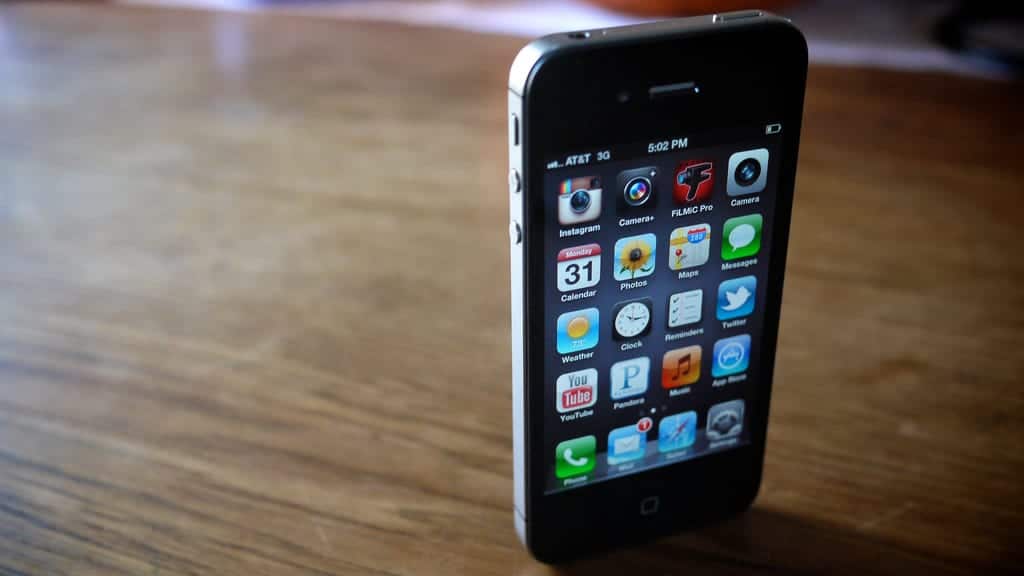Today’s mobile technology and social media apps have been equipped with many features and apps that enable you to get turn-by-turn directions, save and access your data via cloud services, and much more, but as is the case with modern electronics. It is not used in the smartest way possible, and smart use of it isn’t being encouraged much either.

GPS Needs To Be Turned On For Directions, And Not Much Else
A ‘smart’ use of GPS would be to turn it on, get directions if you’re lost, or if you’re just unsure of where you are going, and then switch it off after to save battery life. Unfortunately, GPS is one of the big four wireless battery eaters. The other three are your ISP’s cellular service, Wi-Fi, Bluetooth, and GPS.
Despite this, most of the time GPS and your cellular service are used by apps to track and harass you to continue using them (even if your device is ‘sleeping’. So you’re not benefiting from most of the power that is being used by these wireless services.
Apart from that, there are services you may be using but don’t need, such as location tagging. You don’t need Facebook to track you and tell your friends where you are going, or tell you which city your messages are coming from. If you want your friends or relatives to know where you are going, tell them.
Data Bills: A Financial Bane
I may have exaggerated a bit, but data bills are considerable. Apps which are always online are either running up your bill with every breath you take, or eating up the megabytes you purchased. So, whether it is a fixed-rate monthly plan, pre-paid, or a post-paid account which bills you based on usage, most of the money you spend on it goes down the drain because of these wasteful apps.
If app developers cut back on their data usage, everyone could comfortably switch to a lower-bandwidth plan for a lower price. Many people are struggling financially and could benefit from this.
Processing Power: Everyone Wants More
The average new smartphone contains at least a dual-core CPU and more than 1 GB of RAM, yet people are complaining about sluggish performance more than they did a decade ago. The constant tracking and transmission that many apps do requires processing power and memory. Whether your device is asleep or you’re trying to browse the Internet, it is constantly being slowed down by these apps.
Apart from that, all apps increase your CPU’s power consumption when running.
Modern Mobile Technology Is Harder On Batteries
Typical smartphone batteries only last a day per charge, despite the use of high-energy density lithium-polymer battery technology which is the most powerful mainstream battery technology to ever be used in cellphones. Lithium-polymer batteries can achieve a gravimetric energy density of 180 Wh/kg. That means 1 kg of lithium-polymer batteries can store 180 Wh of energy. This is a big step up from the 95-110 Wh/kg that the older cellphones’ lithium-cobalt (a member of the lithium-ion family) batteries were capable of, yet their battery life was longer.
The previous nickel metal-hydride (NiMH) batteries only achieved 30-60 Wh/kg, and their battery life was comparable as well.
What Does This Suggest About Today’s Mobile Technology?
There are good and bad reasons for this.
- Phones are consuming more power than before because they are connected to many services which aren’t in use at any given moment. They are constantly draining your battery for no good reason.
- Phones are no longer just for making calls. They are now being used much more heavily, and for more tasks, such as music and video playback, video games, social networking, obtaining directions, web browsing, and more.
- Their screens have gotten bigger. Larger screens tend to consume more power, and screens are one of the most significant consumers of power.
Despite the fact that mobile technology has become so much more powerful, this is not why power consumption increased. The efficiency of CPUs has improved by leaps and bounds. Their power doubles every couple of years without any increase in power consumption. Combined with the fact that phone batteries have much greater capacities than they used to, you could theoretically achieve stupendously long battery life per charge if you stopped using all of the apps that were online all the time, but that isn’t going to happen.
In this article, I explain other ways to significantly increase your smartphone or tablet PC’s battery life.
Cloud Storage
Cloud storage has great benefits, including the ability to save some of your device’s memory, but unfortunately, it requires your data service, and that could end up costing an arm and a leg if used heavily for large files. Running up your bill just to play a song you already bought is not the way to go!
Cloud storage is not a bad thing, but relying on it too heavily leads to poor reliability (because it requires an Internet connection), and you’ll find that you’ll only be able to access your files at certain times. Excessive use of cloud computing will also result in higher bandwidth usage, and possibly a larger data bill.
I mentioned cloud storage because it is integrated into today’s mobile technology especially, and it is being pushed by various companies. It always costs money, even if you are not charged directly for the cloud service because it is using your bandwidth and eating your battery.
Impact Of Cloud Storage On Battery Life
After connecting the dots, the fact that cloud computing is often a waste of battery life comes into play because:
- File downloads increase CPU and transceiver power consumption.
- Cloud storage is seldom necessary. You don’t need to store millions of songs on your tablet or phone. You won’t listen to most of them anyway.
Desktop Computer Technology
The situation isn’t quite the same for desktop computer technology because it isn’t portable. You can’t track people using desktops. There are also certain trends in the mobile technology industry that haven’t really taken off in the desktop industry yet, such as apps that run all the time (even if you try to close them). Desktop apps still shut down fully (except Windows 8).
Usage Statistics
Part of the reason apps consume your battery life and bandwidth is because they are collecting usage statistics for themselves. Some say that they are constantly tracking your every move and storing it. I’m not sure if the latter is true, however, I do know that usage statistics are helpful where market research is concerned. Tracking you helps manufacturers and service providers determine what you really want so they can provide it.
On the other hand, they may be using your behavioural pattern data to create new deceptive marketing campaigns that have a greater chance of convincing you to buy things you don’t need. This is a good argument for the preservation of user privacy. We all need it to some degree. Not everything should be out in the open.








